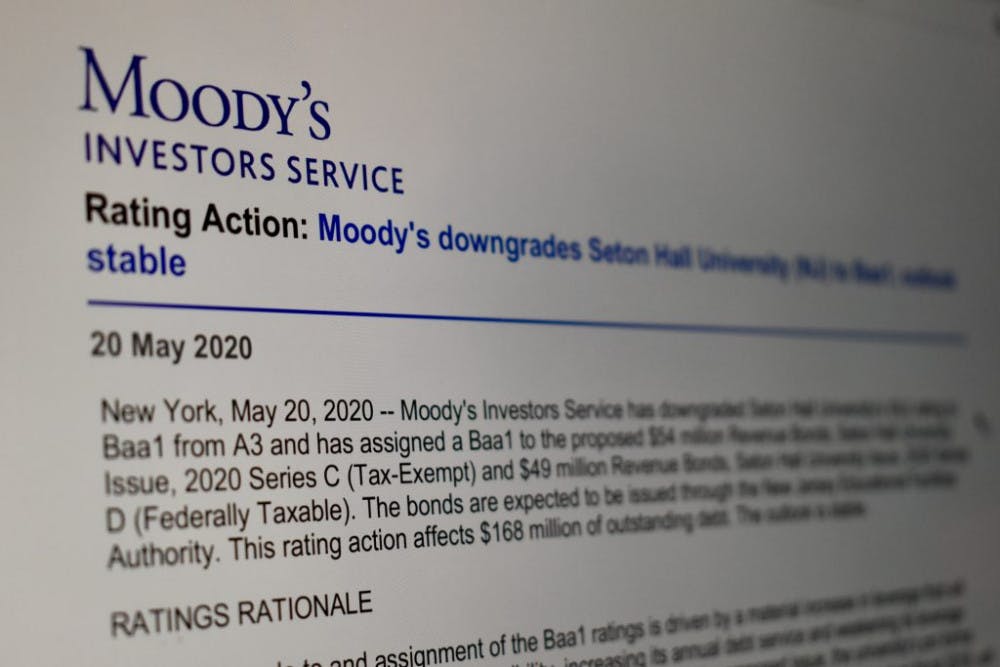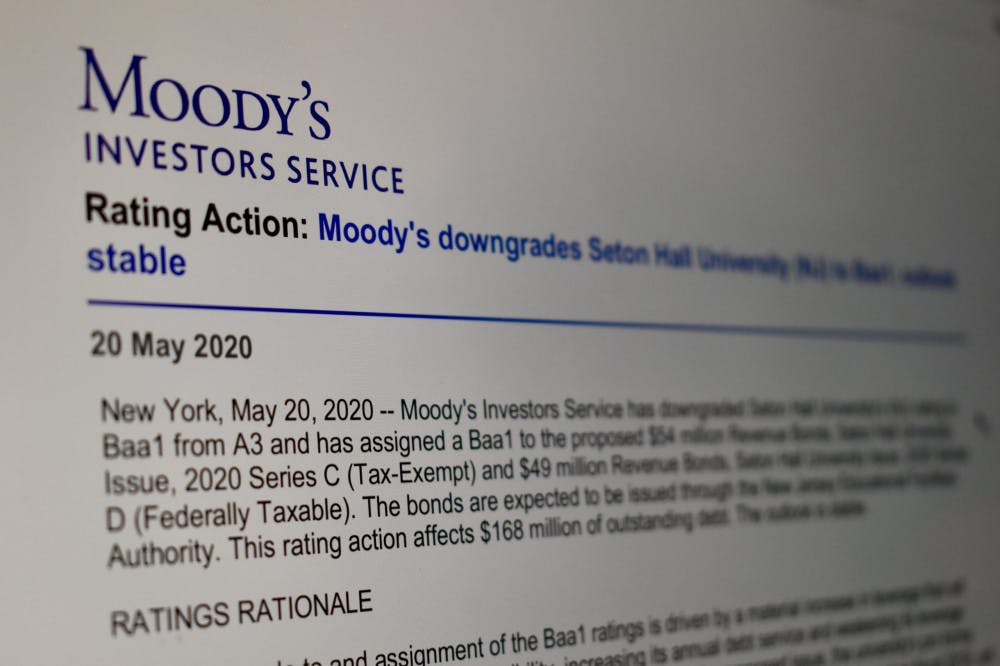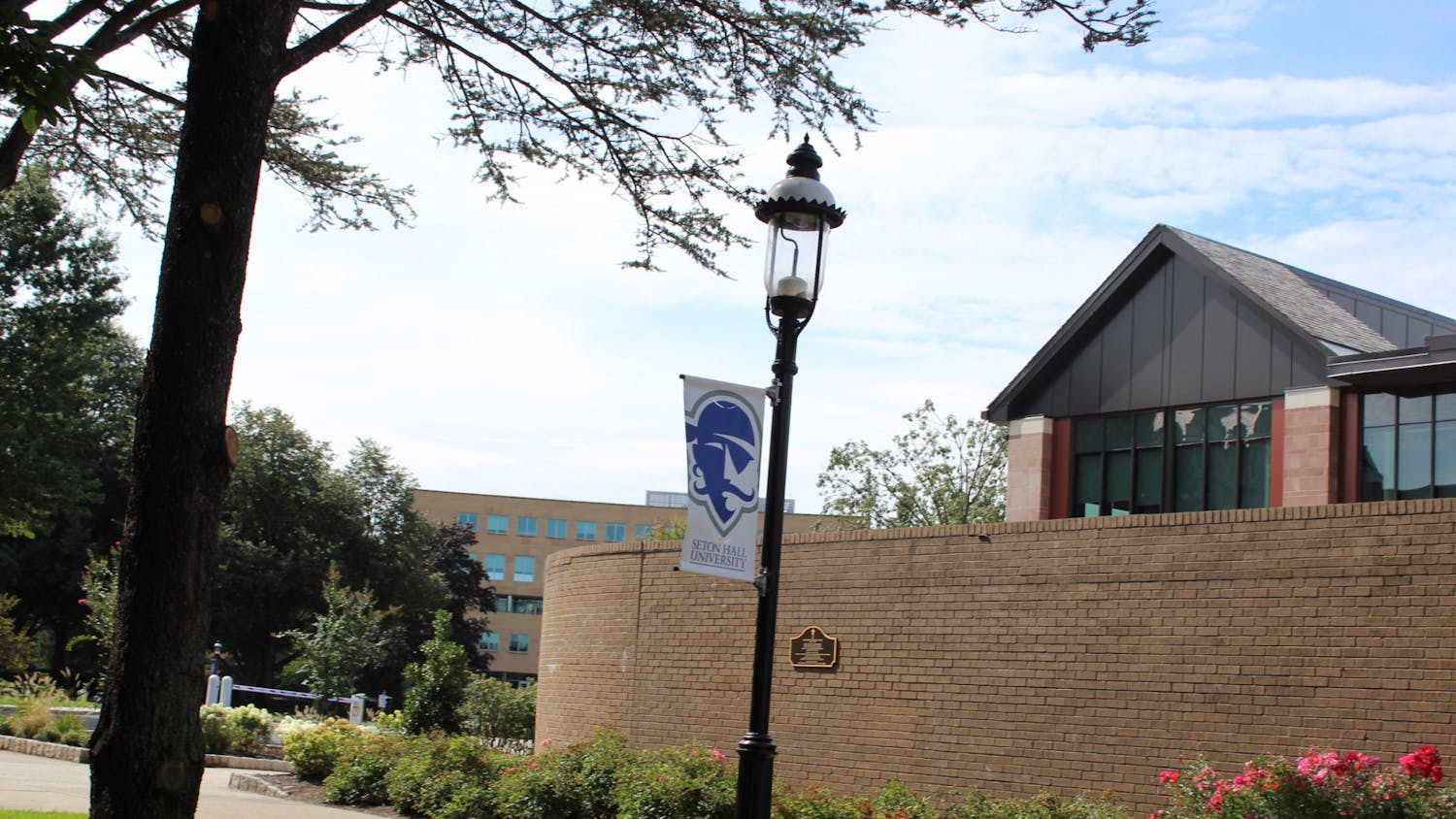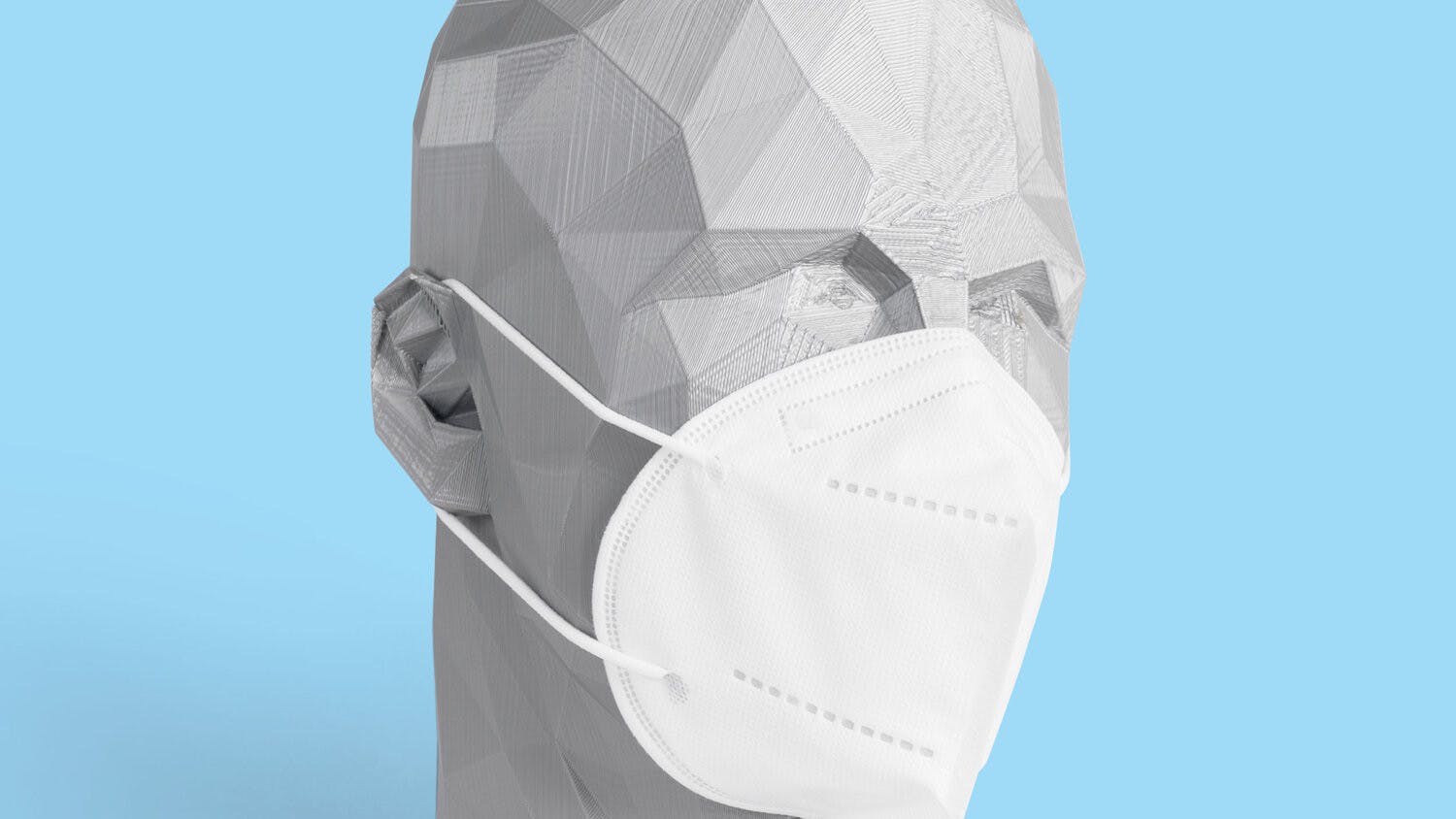Seton Hall received its first credit rating downgrade in nearly 32 years from Moody’s Investors Service on Wednesday. According to records available via Moody’s website, the change marks the only downgrade on record for Seton Hall from the company since it began tracking the University’s fiscal health in 1998.
Citing a “material increase in leverage that will constrain the University’s financial flexibility,” the bond credit rating business knocked Seton Hall down one notch from an A3 rating to a Baa1, a move which will slightly increase the University’s interest rates on borrowed money.

“What this means is that the University is borrowing more money,” Dr. Robert Kelchen, associate professor of higher education at Seton Hall, said of the downgrade. “Now the question underlying this is why are they borrowing money? My guess is that they're taking advantage of the credit market to get some financial flexibility while interest rates are low,” he said, noting that interest rates have fallen considerably in the last two months.
According to Moody’s, the move was based on the University’s planned issuance of two bonds from the New Jersey Education Facilities Authority, totaling roughly $103 million. Additionally, the report knocked the University for “its heavy dependence on student charges, as well as historically modest fundraising,” while operating in the particularly price sensitive higher education industry.
The rating action issued by the company noted that the overall outlook for the University appears to be stable, noting that it expects Seton Hall to “successfully manage through challenging credit conditions” during the 2020-2021 fiscal year.
According to a statement from University Chief Financial Officer Stephen Graham, Seton Hall “fully expected a downgrade related to the debt issuance and concurs with Moody’s assessment of the University’s strategy and response to COVID-19.”
“Our new rating and stable outlook continue to reflect the University’s secure financial position. Based on current market conditions, this rating will have minimal impact on the pricing of bonds issued to Seton Hall,” Graham said.
The credit knockdown comes as colleges and universities across the country face financially precarious situations as a result of the COVID-19 pandemic. In March, Moody’s downgraded its outlook for the higher education industry as a whole from “stable” to “negative” citing “unprecedented enrollment uncertainty” for colleges and universities which could place further financial strains on budgets.
In April, Moody's slashed Rider University’s credit rating to junk, citing ongoing fiscal woes for the school which have been compounded as a result of the COVID-19 pandemic.
As it relates to Seton Hall, Klechen said, “I think overall this means that the University is going to try not to borrow money for a while. But the important thing is that while there was a downgrade, the outlook is stable at that level. Compare that to something like Rider where they got downgraded two categories and have a negative outlook.
“I don't make a big deal of this because basically every university's credit rating is going to go down over the next few months.”
Nicholas Kerr can be reached at nicholas.kerr@student.shu.edu. Find him on Twitter @nickdotkerr.





